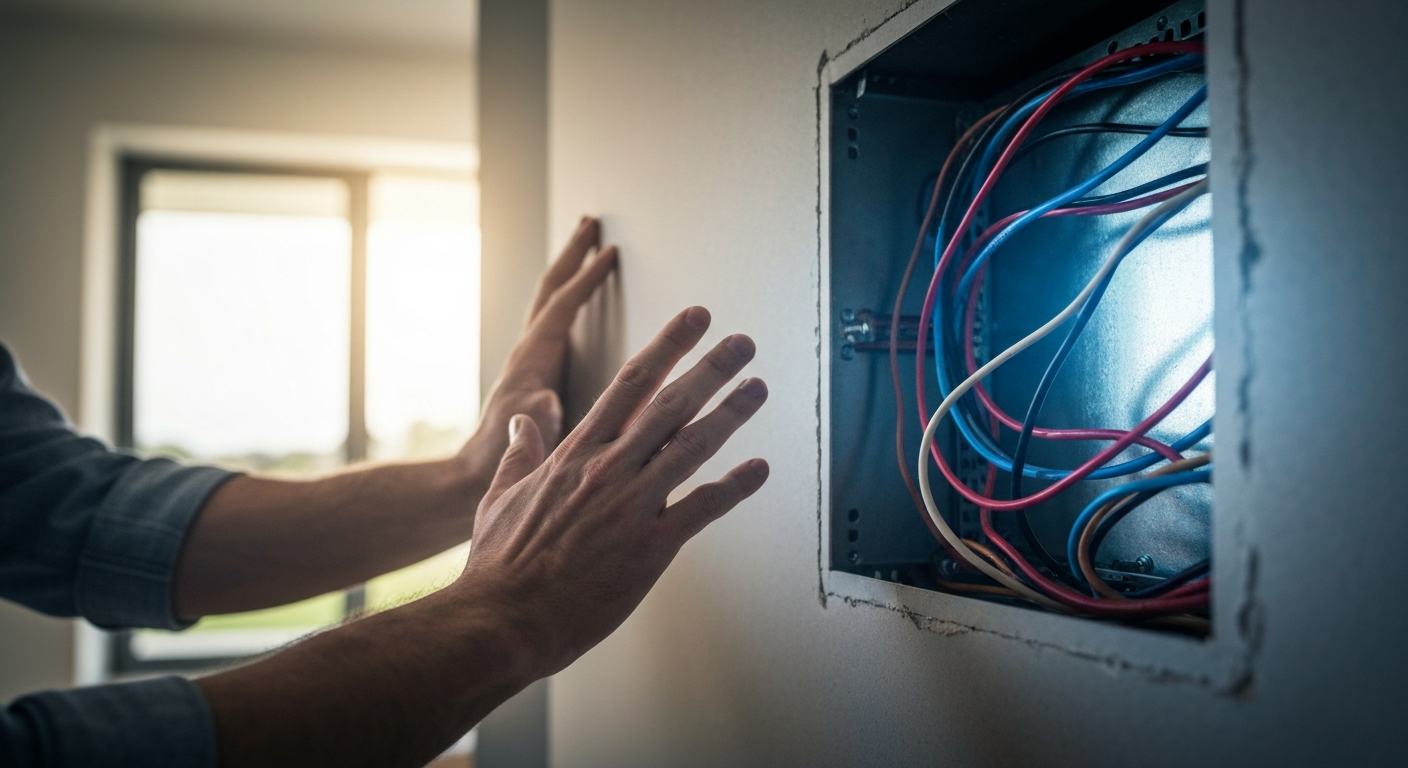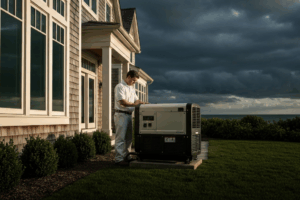
What Electrical Work Can You Do Without a License?
For licensed professionals, understanding these boundaries is key to advising clients and protecting the trade’s integrity. While the general rule is clear—paid electrical work requires a license—several specific exemptions exist. Navigating the nuances of the owner-builder exemption, the notorious “handyman exception,” and rules for low voltage electrical work is critical for both homeowners and professional electricians.
The Bright Line: California’s Licensing and Certification Mandate
In California, the regulatory landscape is governed by two main bodies: the Contractors State License Board (CSLB) and the Department of Industrial Relations (DIR). Generally, any business or individual contracting to perform electrical work valued at $500 or more (for labor and materials) must hold a C-10 Electrical Contractor license from the CSLB, a threshold established by California Business and Professions Code (BPC) Section 7048.
Furthermore, any electrician who works for a C-10 contractor must be certified by the DIR. This system ensures that professionals have a verified level of training and experience, covering everything from the journeyman electrician scope of work to the broader oversight provided by a master electrician authority. The only way for an uncertified individual to legally perform electrical work for a contractor is through formal apprentice electrician supervision.
Exceptions to the Rule: When is Unlicensed Work Allowed?
While the rules are strict, California law provides specific carve-outs. However, these exceptions are narrow and frequently misunderstood, leading to significant non-licensed electrician liability.
The “Handyman Exception”: A $500 Limit
The most commonly cited rule is the handyman exception. This allows an individual to perform minor work without a contractor’s license as long as the total project cost (labor and materials) is under the $500 limit defined in BPC 7048. However, this has a massive catch: the exemption does not apply if the job requires a building permit. Since most electrical installations, like adding a new outlet or circuit, require a permit, this exception rarely covers electrical work beyond the most basic repairs. Attempting to use this loophole for anything more is considered unlicensed electrical work and can result in fines from $200 to $15,000 and even potential jail time.
The Owner-Builder Exemption: Working on Your Own Property
The owner-builder exemption is another significant but limited exception. According to the CSLB, homeowners can perform electrical work on their own principal place of residence. This is an exemption from needing to hire a licensed contractor, not an exemption from the law. The owner-builder is still responsible for:
- Pulling all necessary permits.
- Ensuring all work complies with the California Electrical Code.
- Passing mandatory inspections.
This exemption comes with strict conditions, such as prohibiting the owner from selling or leasing the property for 12 months after completion without providing a disclosure to the buyer, as detailed in BPC Section 7044. It is designed for personal projects, not for unlicensed flipping or building.
Low Voltage Electrical Work: The 91-Volt Rule
A significant area where unlicensed work may be permissible involves certain low-voltage systems. According to the CSLB, a specialized C-7 Low Voltage Systems Contractor license is required for systems that are energy-limited and do not exceed 91 volts. However, individuals may perform low-voltage work without a C-7 license if the total job cost is under the $500 handyman threshold and the work does not require a permit from the local building department, as the CSLB’s C-7 classification applies to contractors installing systems that do not exceed 91 volts. This category of low voltage electrical work includes many popular DIY projects:
- Low voltage landscape lighting
- Thermostats and some HVAC controls
- Doorbells and security cameras
- Data and telephone lines
These systems are often governed by NEC Article 725, which covers power-limited circuits like Class 1 circuits used in remote control and signaling. It’s crucial to confirm that the system is truly low voltage (under 91 volts for contractor licensing rules, though some local permit exemptions kick in at less than 25 volts) and not tied to life-safety systems like fire alarms, which have separate, stringent requirements.
What About “Simple” Replacements and Maintenance Tasks?
Many jurisdictions offer electrical permit exemptions for minor repairs and maintenance. This is where the concept of like-in-kind replacement comes into play. In many parts of California, you generally do not need a permit for basic electrical maintenance tasks such as:
- Replacing a faulty light switch or receptacle in an existing, properly wired box.
- Replacing a lamp or a light fixture if no new wiring is added.
- A simple circuit breaker replacement with a breaker of the same type and rating.
However, replacing a standard outlet with a GFCI outlet can be a gray area. While it’s a direct replacement, it’s also a safety upgrade that changes the circuit’s characteristics. When in doubt, checking with the local building department is the safest course of action.
The High Cost of Getting It Wrong
For licensed professionals, the risks of stepping outside your license’s scope are clear. For homeowners or unlicensed individuals, the dangers are even greater. Beyond the legal penalties, improper electrical work is a leading cause of home fires. The National Fire Protection Association (NFPA) reports that home fires involving electrical failure or malfunction caused an estimated average of 390 civilian deaths and 1,330 civilian injuries each year in 2015–2019. This underscores the critical importance of job safety planning, even on seemingly minor projects. Understanding updates to NFPA 70E for job safety planning is essential for professionals who want to mitigate these risks.
Ultimately, the line is drawn at safety and permits. Any work that alters a building’s wiring, adds a new circuit, or requires a permit must be handled by a licensed professional or a homeowner acting under the strict rules of the owner-builder exemption. Professionals understand that the NEC is constantly evolving to improve safety, and keeping up with these changes is non-negotiable. Familiarizing yourself with how the 2023 NEC improves electrical worker safety or the latest arc-flash hazard warning requirements is part of the job.
For licensed electricians committed to excellence and safety, staying current with your continuing education is paramount. The rules are complex, the technology is always changing, and your expertise is what protects your clients and your career. To ensure you’re at the top of your game, browse our courses and stay ahead of the curve.
Suggested Image ALT Text:
ALT: A wall with an exposed electrical box showing low voltage wiring next to a standard 120V outlet, illustrating the difference between licensed and unlicensed electrical work.
Continuing Education by State
Select your state to view board-approved continuing education courses and requirements:
Disclaimer: The information provided in this educational content has been prepared with care to reflect current regulatory requirements for continuing education. However, licensing rules and regulations can vary by state and are subject to change. While we strive for accuracy, ExpertCE cannot guarantee that all details are complete or up to date at the time of reading. For the most current and authoritative information, always refer directly to your state’s official licensing board or regulatory agency.



